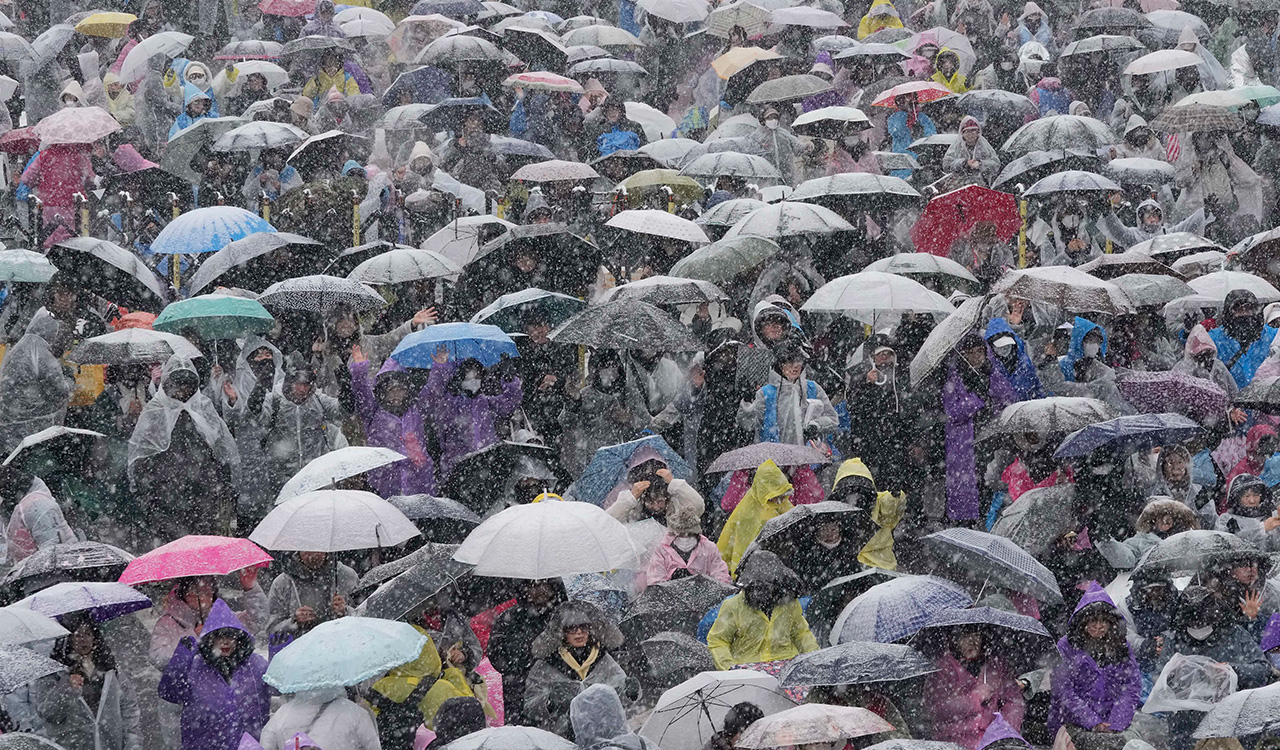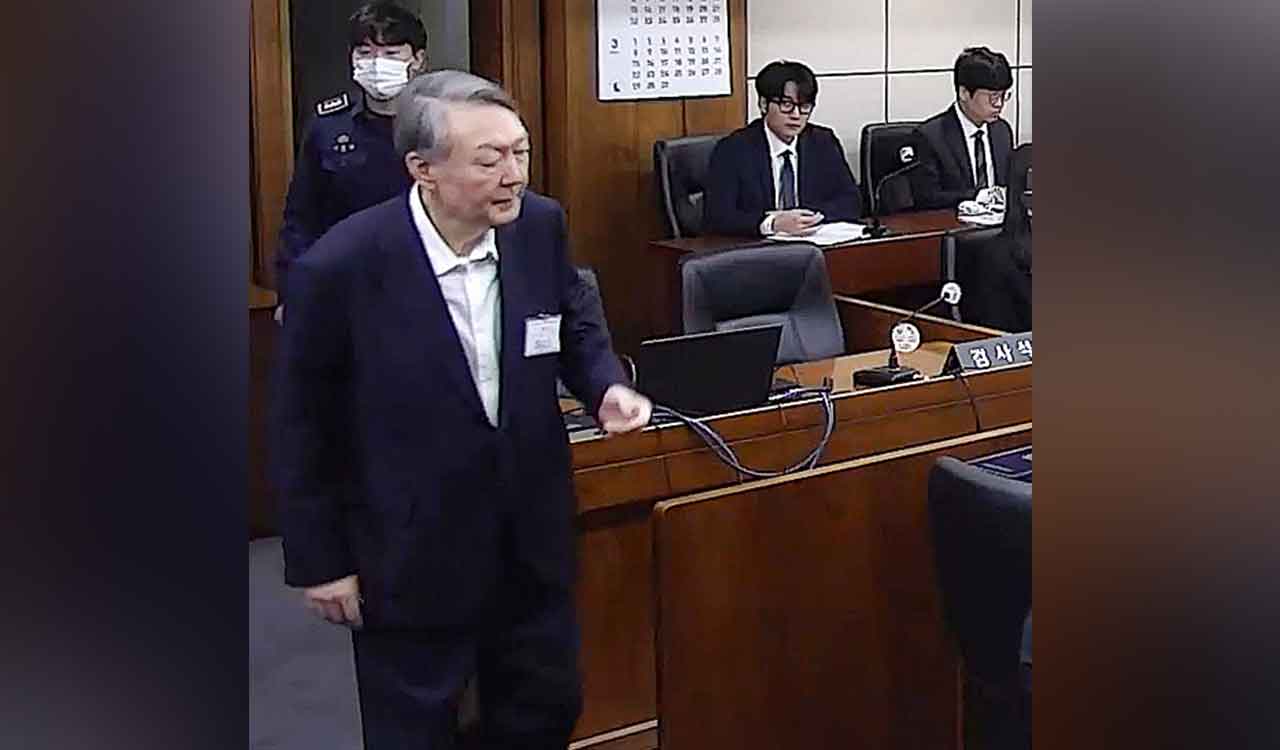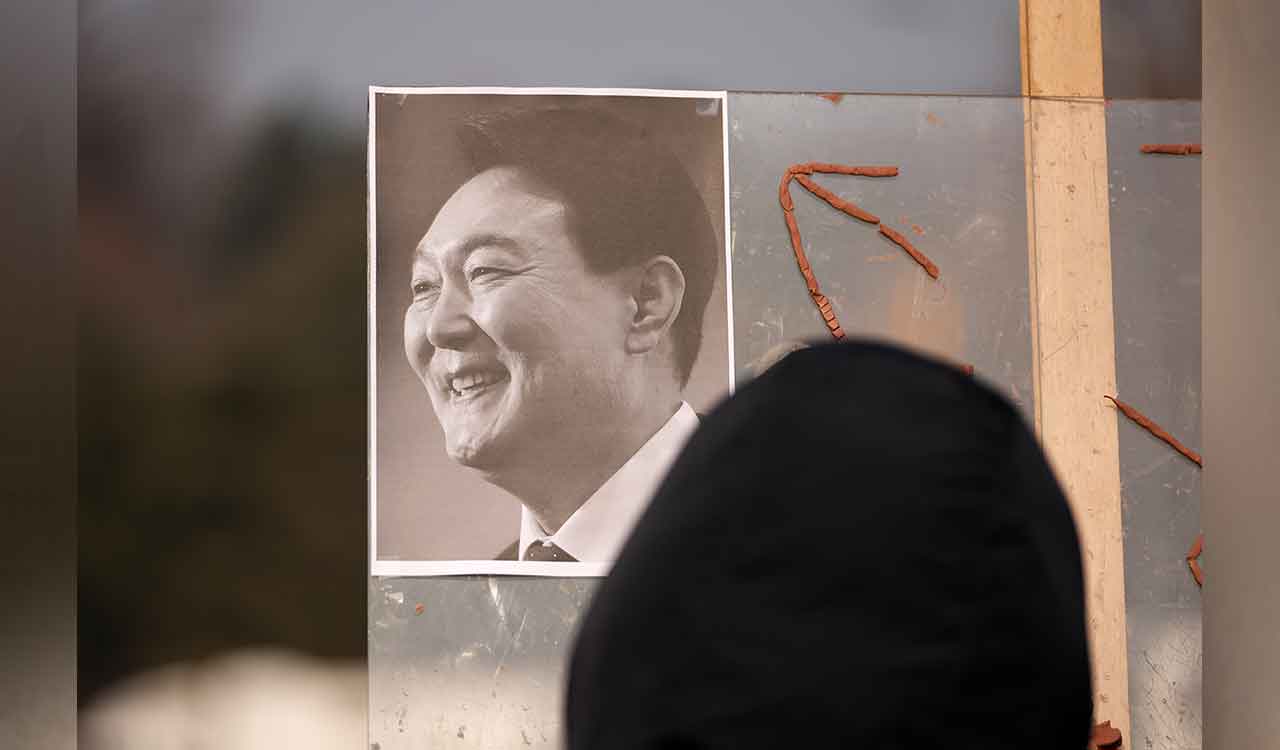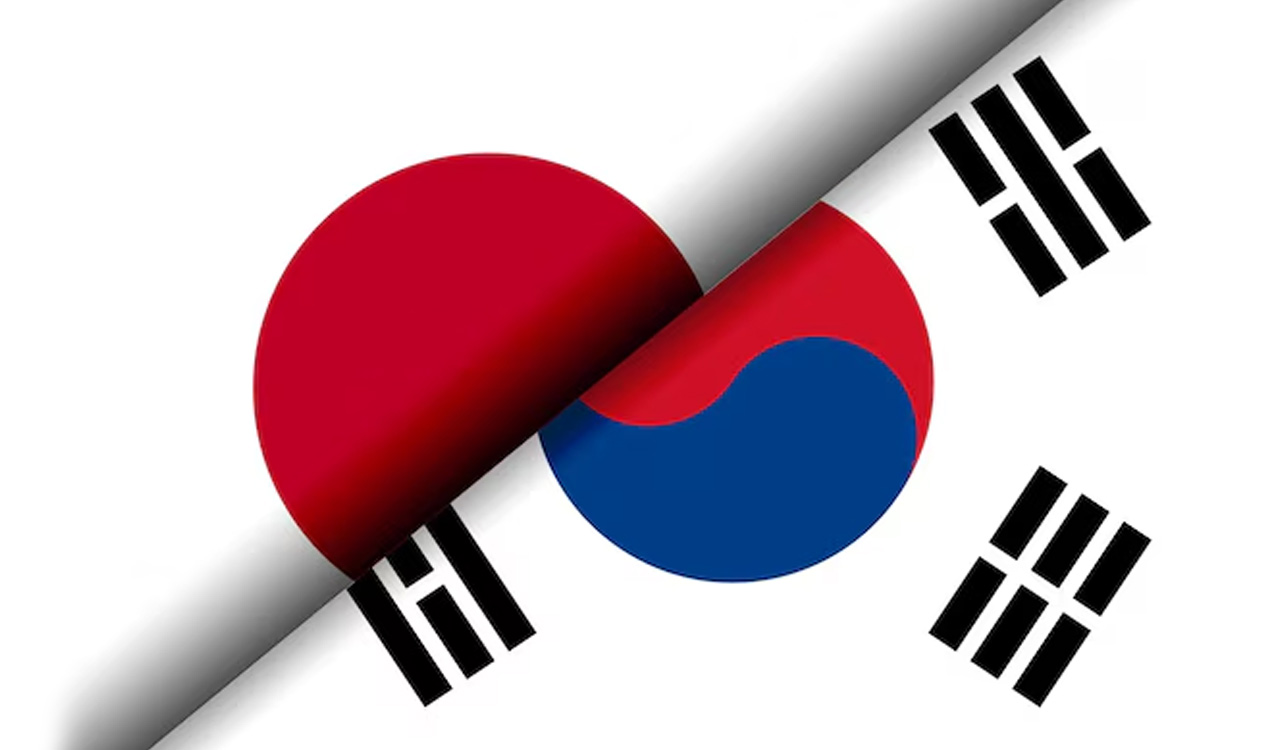South Koreans demand Yoon’s ouster as detention deadline looms
Hundreds, bundled up against freezing temperatures and snow, rallied near residence of impeached President

Seoul: Hundreds of South Koreans, bundled up against freezing temperatures and snow, rallied overnight into Sunday near the residence of impeached President Yoon Suk Yeol, calling for his ouster and arrest, as authorities prepared to renew their efforts to detain him over his short-lived martial law decree.
Dozens of anti-corruption agency investigators and police attempted to execute a detainment warrant against Yoon on Friday but retreated from his residence in Seoul after a tense standoff with the presidential security service that lasted more than five hours.
Also Read
The one-week warrant for his detention is valid through Monday. There were no immediate indications that anti-corruption authorities were ready to send investigators back to the residence as of Sunday afternoon. Staff from the presidential security service were seen installing barbed wire near the gate and along the hills leading up to Yoon’s residence over the weekend, possibly in preparation for another detention attempt.
A Seoul court last Tuesday issued a warrant to detain Yoon and a separate warrant to search his residence after the embattled president repeatedly defied authorities by refusing to appear for questioning and obstructing searches of his office. But enforcing them is complicated as long as Yoon remains in his official residence.
Investigators from the country’s anti-corruption agency are weighing charges of rebellion after the conservative president, apparently frustrated that his policies were blocked by a legislature dominated by the liberal opposition, declared martial law on Dec. 3 and dispatched troops to surround the National Assembly.
The Assembly overturned the declaration within hours in a unanimous vote and impeached Yoon on Dec. 14, accusing him of rebellion, while South Korean anti-corruption authorities and public prosecutors opened separate investigations into the events.
If the anti-corruption agency manages to detain Yoon, it will likely ask a court for permission to make a formal arrest. Otherwise, Yoon will be released after 48 hours.
The Corruption Investigation Office for High-Ranking Officials, which is leading a joint investigation with police and military investigators, says detaining Yoon would be “virtually impossible” as long as he is protected by the presidential security service. The agency has urged the country’s acting leader, Deputy Prime Minister Choi Sang-mok, to instruct the service to comply with their execution of the detainment warrant, but Choi has yet to publicly comment on the issue.
The chiefs and deputy chiefs of the presidential security service defied summonses on Saturday from police, who planned to question them over the suspected obstruction of official duty following Friday’s events.
Yoon’s legal team said it will file complaints against the anti-corruption agency’s chief prosecutor, Oh Dong-woon, and approximately 150 investigators and police officers involved in Friday’s detention attempt, which they claim was unlawful. The team said it will also file complaints with public prosecutors against the country’s acting defense minister and police chief for ignoring the presidential security service’s request to provide additional forces to block the detention attempt.
Yoon’s lawyers had submitted an objection to the warrants against the president on Thursday, but the Seoul Western District Court dismissed the challenge on Sunday.
Related News
-
Ex-South Korean President Yoon sentenced to life imprisonment over martial law bid
-
Samsung unveils advanced privacy tech, showcases Olympic edition Galaxy Z Flip 7
-
South Korean court sentences Yoon to 5 years in prison on charges related to martial law decree
-
Japan, South Korea summit seeks unity amid China, North Korea tensions
-
Gold ornaments stolen from woman at Jogipet bus station
5 mins ago -
Disqualification of BRS turncoat MLAs inevitable, elections soon, says KP Vivekanand
7 mins ago -
KTR writes open letter to CM, demands budget allocations for six guarantees
9 mins ago -
Auto drivers and unions join BRS signature campaign for SCB merger in Secunderabad Cantonment
12 mins ago -
Hyderabad: EAGLE Force arrests man with 28 kg ganja at Abdullapurmet
13 mins ago -
Jubilee Hills police arrest couple for gold chain snatching from woman
14 mins ago -
BRS Impact: TSHRC orders immediate restoration of water, power, for Dalits in Hanamkonda
18 mins ago -
Undertrial prisoner dies of heart attack in Sangareddy
27 mins ago




